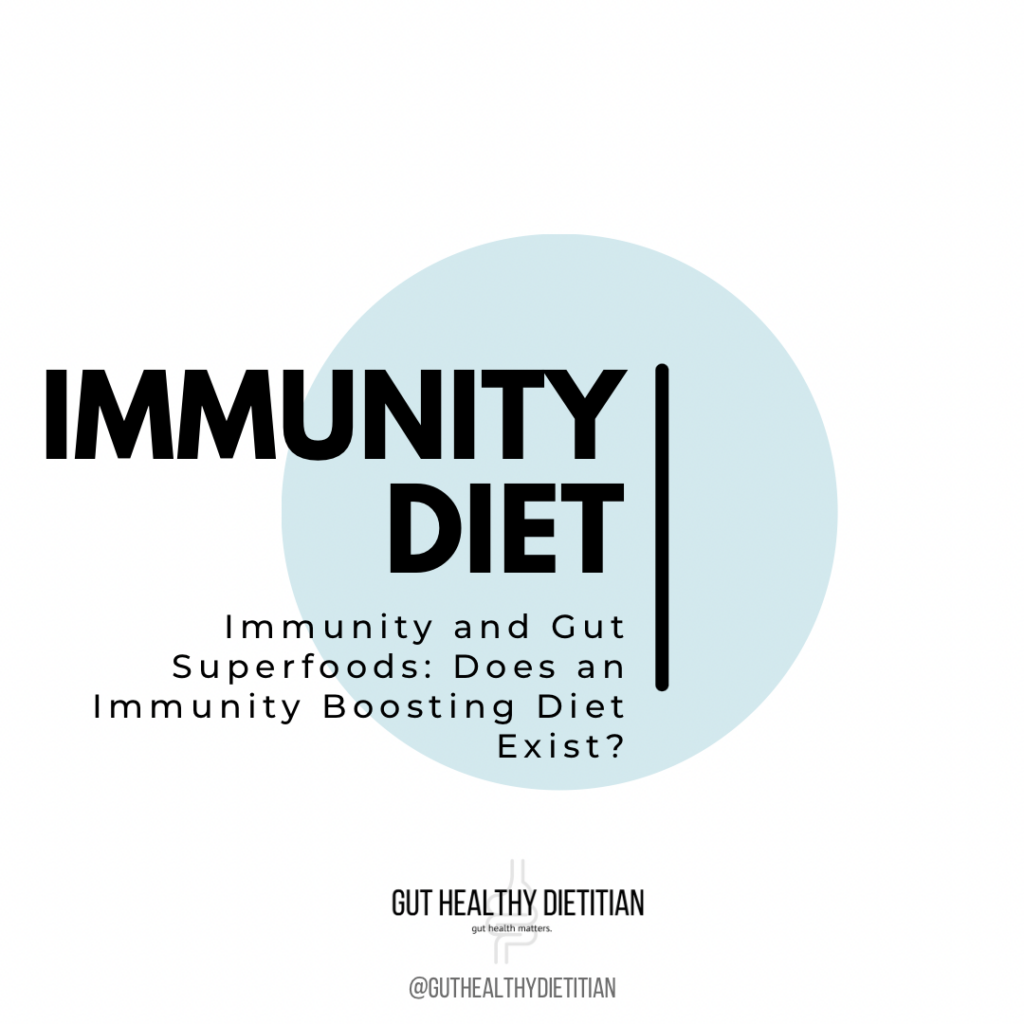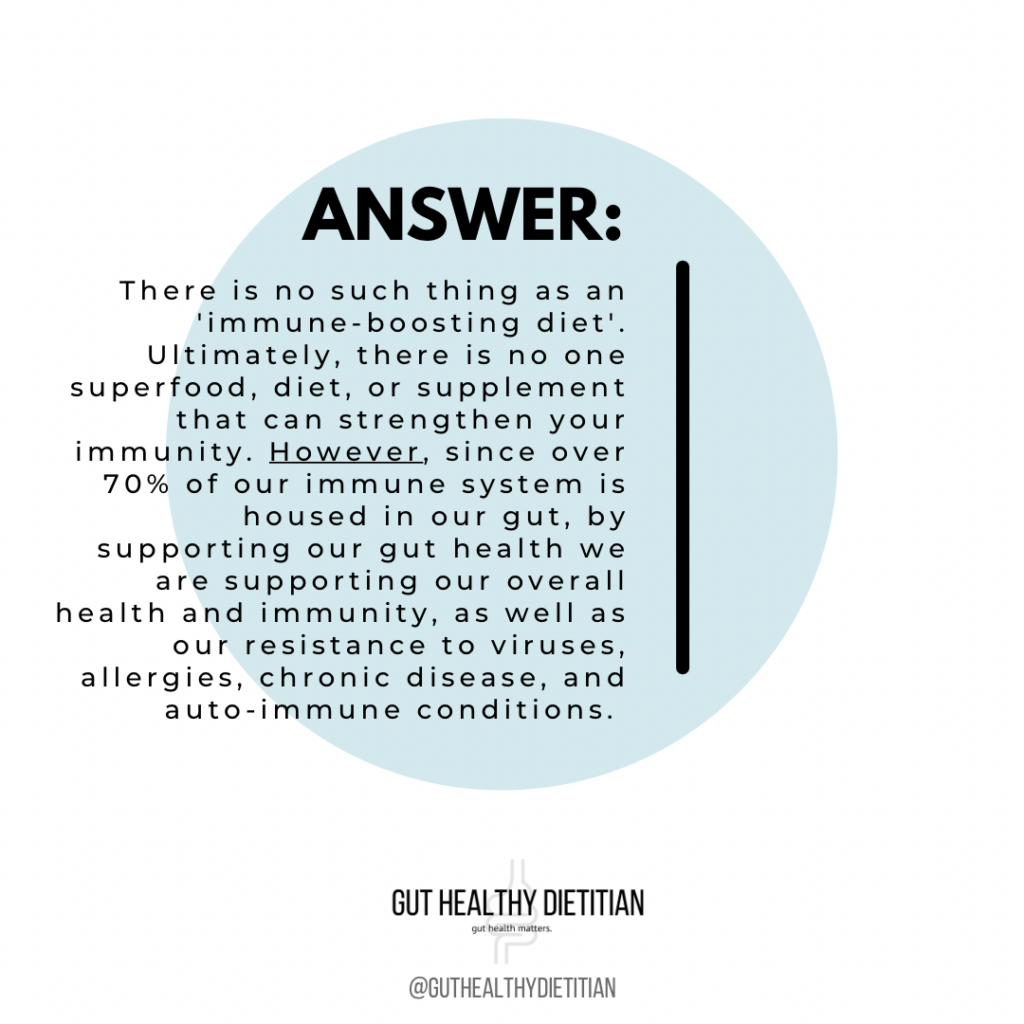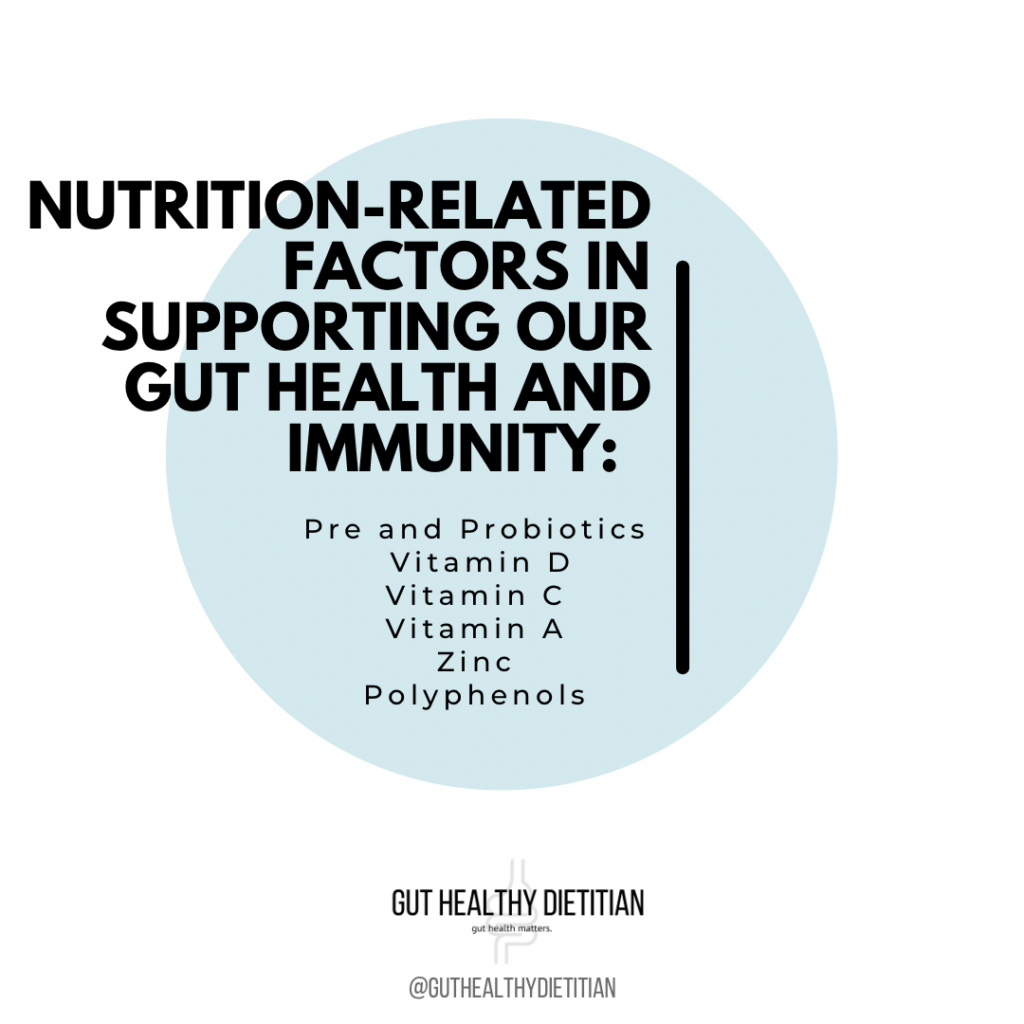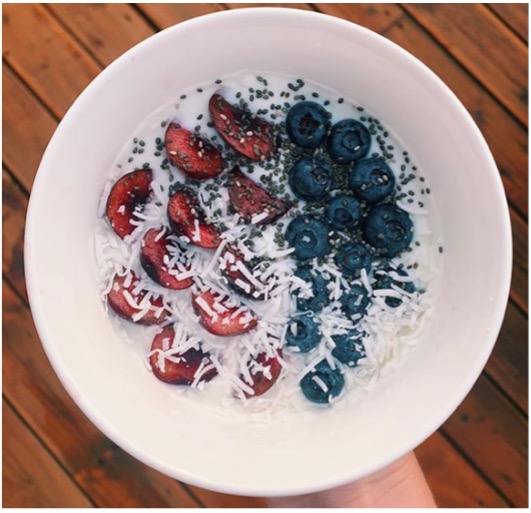Immunity has been a particularly hot topic for the past two years because of the pandemic. Throughout the pandemic we have seen waves of different ‘immunity-boosting’ interventions and enhancing immunity has been a priority across the world. Gut health, and the idea of ‘gut superfoods’, has also sky rocketed in popularity over the past few years.

If you want to protect yourself from COVID-19, a vaccine is the most direct strategy for immune protection.
However, the question remains whether it possible to support our immunity through diet and lifestyle interventions.

The answer is multi-faceted. There is no such thing as an ‘immune-boosting diet’. Ultimately, there is no one superfood, diet, or supplement that will make you immune to COVID-19. However, due to the fact that over 70% of our immune system is housed in our gut, by supporting our gut health we are supporting our overall health and immunity, as well as our resistance to viruses, allergies, chronic disease, and auto-immune conditions.
What are Gut Superfoods?
Ultimately, the single best way to support our gut health is to eat a high fiber diet that is diverse in a wide variety of plant foods. Including healthy fats and antioxidant foods, particularly a potent type of antioxidant called polyphenols, can also help to support our gut health. These foods are often referred to as gut superfoods.

Gut Superfoods: Pre and Probiotics
Prebiotics and probiotics can support a healthy immune system by promoting flourishing gut bacteria! Prebiotics encourage the growth and life of beneficial microorganisms in the gut and are plant-based fibres. To add more prebiotics to your diet, consider adding bananas, seeds, asparagus, oats, berries, and more! To make that summer patio burger meal more gut-friendly, try coleslaw as a side instead of fries or a bean burger instead of a hamburger. You can find probiotics in kefir, live yogurt, sauerkraut, and kombucha.

Gut Superfoods: Vitamin D
Vitamin D can support a healthy immune system through regulating gut-associated inflammation. Unregulated inflammation is a problem because it can make our bodies more susceptible to damage over time, eventually lowering our immune strength. This vitamin is crucial for immune health because it enhances the function of white blood cells – the cells that ward off infectious particles! Foods high in vitamin D include salmon, sardines, oranges, egg yolk, mushrooms, and sunshine. However, vitamin D is the one supplement that I truly believe everyone should be taking (especially in North America where there is limited sun exposure at different times of the year).
Gut Superfoods: Vitamin C
Vitamin C is often over-hyped in the media. With vitamin C immune-boosting claims, vitamin C supplement shelves were empty at the start of the pandemic. However, although there is some limited evidence that supplementing vitamin C may help reduce the severity and duration of the common cold, there is currently no evidence that vitamin C will help to prevent or reduce the severity of the coronavirus. Vitamin C plays an important role in many bodily functions (such as the repair and absorption of iron), however it is generally easy to meet vitamin C requirements from a wide range of fruit and vegetables (including peppers, oranges, strawberries, kiwis, tomatoes and broccoli).

Gut Superfoods: Vitamin A
Vitamin A is a gut super-nutrient! Vitamin A is central to immune homeostasis in the gut. Vitamin A has a role in mediating the relationship between gut bacteria and immune system. Research has shown that having moderate levels of vitamin A in the intestine prevent the immune system from becoming overactive. Facilitating an appropriate immune response could have a powerful role in the prevent of autoimmune conditions.
Vitamin A deficiency has a significant effect effect on the bacteria community of the gut. Deficiency of vitamin A results in changes to the gut microbiome including an increase in the Bacteroides vulgatus population, which can allow for foreign and dangerous bacteria to populate and expand. Examples of foods high in vitamin A include dark leafy greens, dark orange and yellow vegetables, eggs, and liver.

Gut Superfoods: Zinc
Another scenario where a nutrient deficiency can disrupt gut health is with inadequate zinc levels. Zinc deficiency can cause changes in the gut microbiome and is also associated with poor immune function. Foods that are packed with zinc include red meat, poultry, seafood, whole grains, dairy, and some nuts and seeds. Switching to whole grains instead of white flour, sprinkling hemp hearts on your morning yogurt, and having a small handful of almonds for an afternoon snack are easy ways to boost your zinc intake.
Gut Superfoods: Polyphenols
Polyphenols, which are a type of phytochemical (plant chemical) that are high in antioxidants, are recognized for their beneficial function in the human body. They are known to both increase the quantity of helpful gut bacteria and improve signalling pathways of the immune system. Examples of foods that are high in polyphenols include cocoa (chocolate), purple grapes, red wine, black and green tea, soy, olives, onions, citrus fruits, and more.
Conclusion
Overall, we cannot “boost” our immune system, we can only promote a healthy balanced immune system. This balance can be achieved through a healthy gut (a diverse and abundant microbiota!) and corresponding healthy lifestyle habits. Although superfoods can be nutrient dense, do not expect that one single food will grant you superior health. It is a combination of foods and habits that will support overall health. A diet high in fiber, healthy fats and antioxidants, regular exercise, getting enough sleep, and avoiding smoking all promote a healthy gut and strong immune system.
References:
- Whitney EN, Hammond G, Piché LA, Rolfes SR. Understanding nutrition. Toronto: Nelson Education; 2016.
- Ray SK, Mukherjee S. Evolving Interplay Between Dietary Polyphenols and Gut Microbiota—An Emerging Importance in Healthcare. Frontiers in nutrition (Lausanne). 2021;8:634944–634944.



Leave a Reply